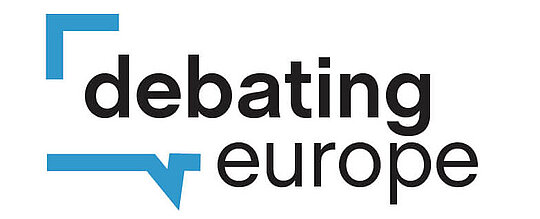The urgency of the refugee crisis continues unabated. In recent days, 9,000 migrants were pulled from the sea and brought to Italy in a harrowing weekend rescue operation. Migrant deaths in the Mediterranean Sea rose by 35% to 5,000 people in 2016, even though overall migration to Europe decreased significantly in 2015, according to the International Organization for Migration (IOM).
Hertie School Master of International Affairs student Julia Black, who is a Project Coordinator for the IOM’s Missing Migrants Project, says the Central Mediterranean route – from North Africa to Italy - is one of the most treacherous for migrants. As their living conditions in Libya have deteriorated, many migrants are willing to risk the lengthy crossing in overfilled, unseaworthy vessels, at the hands of ruthless smugglers.
“The increase in migrant deaths in the Mediterranean each year since 2014 is a clear indication that migrants need safe legal alternatives to reach Europe,” says Black. “However, such alternatives would need to come from the EU or its Member States, and would require a significant amount of coordination.”
There are several reasons why pressure for a policy solution has abated. Now in its third year, interest in the refugee crisis among European populations has waned, and since last year’s closure of the Balkan route and greater control over those travelling from Turkey to Greece, there is much less media coverage of the crisis, says Black. The number of arrivals in Europe has dropped by more than 90%.
“It is quite likely that the migration crisis received less coverage than previously. However, it should be remembered that the European migration crisis is now in its third year, and with any ongoing crisis media fatigue certainly plays a role in the coverage we see,” says Black.
Migrants need access to safe passage, so that they no longer choose to risk their lives on such sea crossings, she says. Right now, non-governmental organisations helping ensure safe passage are stretched to their limits. During the Easter weekend rescue operation, some boats operated by NGOs were forced to send distress signals, including one operated by Jugend Rettet – a project students at the Hertie School are involved in.
A discussion about how policymakers could resolve the impasse will take place at the Hertie School on Monday, 24 April at 18:00, in partnership with Debating Europe and Europe for Citizens (EACEA). (Registration form to the right.)
“While I would leave the policy suggestions to the experts we will hear from on Monday, it is clear that migrants need legal alternatives to irregular migration across the Mediterranean in order to end these unnecessary deaths,” says Black.
The panel discussion will include Julia Black, Hertie School Professor Başak Çalı, Director for Migration and Protection in Directorate-General for Home Affairs at the European Commission Laurent Muschel, Board Member of Médecins Sans Frontières (MSF) Tankred Stöbe, and member of the Faculty of Laws at University College London (UCL) Ralph Wilde. Find more details about the event <link en events event-previews>here.



